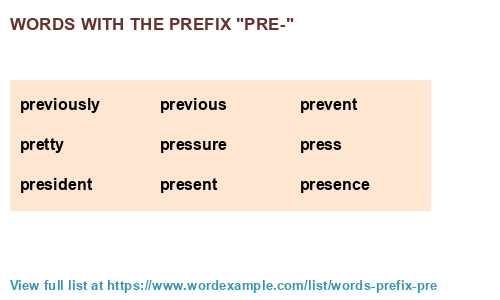Pre-Owned Semi Trucks For Sale: Your Comprehensive Guide to Smart Investing on the Road sale.truckstrend.com
The open road beckons, and for many, a semi-truck isn’t just a vehicle; it’s a business, a livelihood, and a ticket to independence. While brand-new semi-trucks boast the latest technology and zero mileage, their hefty price tags can be a significant barrier for owner-operators, small fleets, or even larger companies looking to expand cost-effectively. This is where the thriving market for Pre-Owned Semi Trucks For Sale steps in, offering a robust and economically sensible alternative.
Purchasing a pre-owned semi-truck means acquiring a vehicle that has already experienced its initial depreciation, making it a far more accessible entry point into the lucrative world of trucking. It’s a strategic move that allows buyers to stretch their capital further, potentially acquiring a higher-spec truck for the same budget, or simply reducing their initial financial outlay. However, navigating the pre-owned market requires diligence, knowledge, and a keen eye for value. This comprehensive guide will equip you with everything you need to make an informed and successful purchase.
Pre-Owned Semi Trucks For Sale: Your Comprehensive Guide to Smart Investing on the Road
The Unmistakable Advantages of Opting for Pre-Owned
Choosing a used semi-truck isn’t just about saving money; it offers a multitude of benefits that can significantly impact your bottom line and operational efficiency.
- Significant Cost Savings: This is, without doubt, the primary driver. New semi-trucks can easily cost upwards of $150,000 to $200,000 or more. A well-maintained pre-owned truck, even just a few years old, can be acquired for a fraction of that price, freeing up capital for other essential business expenses like fuel, insurance, or initial maintenance.
- Depreciation Absorption: Like all vehicles, semi-trucks experience their steepest depreciation in the first few years. When you buy pre-owned, the previous owner has already absorbed this initial loss, meaning your investment retains its value better over time.
- Immediate Availability: Unlike new trucks that often have long lead times for manufacturing and delivery, pre-owned trucks are typically available for immediate purchase and deployment, allowing you to start earning revenue sooner.
- Proven Track Record: A used truck comes with a history. With proper due diligence, you can review its maintenance records, understand its previous usage, and gauge its reliability based on real-world performance.
- Wider Selection and Customization Potential: The pre-owned market offers an enormous variety of makes, models, configurations, and specialized features that might no longer be available new. This broad selection allows you to find a truck that perfectly fits your specific operational needs. Furthermore, the cost savings can free up budget for aftermarket customizations or upgrades.

Diverse Categories of Pre-Owned Semi Trucks
The world of semi-trucks is vast, and the pre-owned market reflects this diversity. Understanding the common types will help you narrow down your search.
- Sleeper Cab Trucks: These are designed for long-haul operations, featuring an integrated living space behind the cab, complete with a bed, storage, and sometimes amenities like refrigerators or microwaves. They are ideal for cross-country routes where drivers need to rest on the road.
- Day Cab Trucks: Lacking the sleeping compartment, day cabs are shorter and lighter, making them perfect for regional hauling, local deliveries, construction, or port work where drivers return home daily. Their reduced weight can also increase payload capacity.
- Vocational Trucks: This category encompasses highly specialized trucks built for specific industries, often featuring unique chassis modifications or attached equipment. Examples include:
- Dump Trucks: For hauling aggregate, sand, or demolition debris.
- Tanker Trucks: Designed to transport liquids (fuel, chemicals, milk) or dry bulk materials (cement, grain).
- Flatbed Trucks: For oversized or irregularly shaped cargo that can be loaded from the top or sides.
- Refuse Trucks: Garbage collection vehicles.
- Logging Trucks: Equipped for hauling timber.
- By Manufacturer: Popular manufacturers dominate the pre-owned market, each with its own reputation for reliability, comfort, and features. Common brands include Freightliner, Peterbilt, Kenworth, Volvo, International, and Mack. Each brand offers a range of models within the sleeper and day cab categories.
Essential Considerations Before You Buy
Purchasing a pre-owned semi-truck is a significant investment. Thorough research and careful consideration of several key factors are paramount to making a sound decision.
- Budget and Financing: Beyond the sticker price, factor in potential maintenance, insurance, fuel, and registration costs. Explore financing options from banks, credit unions, or specialized heavy truck lenders. Getting pre-approved for a loan can give you a strong negotiating position.
- Comprehensive Vehicle Inspection: This is non-negotiable. Always arrange for a pre-purchase inspection by a qualified, independent heavy-duty mechanic. They will assess the engine, transmission, brakes, suspension, tires, electrical system, frame, and cab interior for any signs of wear, damage, or neglect. A detailed report can reveal hidden issues and give you leverage for negotiation.
- Mileage and Age: While lower mileage is generally preferred, a truck with high mileage but a meticulously documented maintenance history might be a better value than a low-mileage truck that has been neglected. For heavy-duty trucks, 500,000 to 700,000 miles is often considered a sweet spot for good value, as major components may have been replaced or are due for replacement.
- Maintenance History and Service Records: Request and meticulously review all available service records. A complete history indicates proper care and allows you to anticipate upcoming maintenance needs. Look for consistent oil changes, preventative maintenance, and records of major component replacements.
- Application and Intended Use: Your operational needs dictate the type of truck you should buy. Will it be used for long-haul, regional, or local routes? What type of cargo will it carry? This affects your choice of engine size, transmission type, axle configuration, and sleeper size.
- Emissions and Regulatory Compliance: Be aware of current and upcoming EPA emissions standards (e.g., DEF systems, DPFs). Older trucks might not meet modern emissions requirements, limiting their operational areas or incurring penalties. Ensure the truck complies with all federal and state regulations for your intended use.
- Warranty Options: While most pre-owned trucks are sold "as-is," some dealerships offer limited warranties, or you might be able to purchase an aftermarket extended warranty. These can provide peace of mind against unexpected major repairs.
Where to Find Your Next Pre-Owned Semi Truck
The market for used semi-trucks is extensive, offering multiple avenues for purchase.
- Authorized Dealerships: Many new truck dealerships also have dedicated used truck departments. They often offer certified pre-owned trucks that have undergone rigorous inspections and may come with limited warranties. This provides a higher level of trust and often access to financing.
- Independent Used Truck Dealerships: These specialize exclusively in pre-owned trucks and typically have a wider inventory from various manufacturers. Prices might be more competitive, but due diligence on the seller’s reputation is crucial.
- Online Marketplaces: Websites like TruckPaper.com, CommercialTruckTrader.com, MyLittleSalesman.com, and RitchieSpecs.com aggregate listings from dealers and private sellers across the country. These platforms allow for extensive filtering by make, model, year, price, and location.
- Auctions: Both online and physical auctions (e.g., Ritchie Bros., IronPlanet) can offer excellent deals, but they require a higher level of expertise. Trucks are often sold "as-is, where-is," and pre-inspection is critical but sometimes limited.
- Private Sellers: Buying directly from an owner-operator or a small fleet can sometimes yield the best prices, as there’s no dealer markup. However, the transaction requires more personal responsibility for inspections, paperwork, and financing.
The Buying Process: A Step-by-Step Guide
Once you’ve identified potential trucks, follow these steps for a smooth purchase:
- Define Your Needs and Budget: Be clear about the type of truck, specifications, and the maximum you’re willing to spend.
- Research and Shortlist: Use online resources to compare prices, features, and availability. Read reviews of specific models and sellers.
- Initial Contact and Questions: Call or email sellers to ask detailed questions about the truck’s history, maintenance, and any known issues. Request photos and videos.
- In-Person Inspection (or Virtual if Remote): If possible, visit the truck. Check for rust, fluid leaks, tire wear, and overall condition. Start the engine and listen for unusual noises. Test all lights, wipers, and dashboard indicators.
- Professional Pre-Purchase Inspection: As emphasized, hire an independent mechanic specializing in heavy trucks. This is the single most important step to avoid costly surprises.
- Negotiate the Price: Use the inspection report findings as leverage. Be prepared to walk away if the price isn’t right or if significant issues are uncovered.
- Arrange Financing: Secure your loan if not already pre-approved.
- Complete Paperwork: Ensure you receive a clear title, a bill of sale, and any other necessary documentation. Verify the VIN matches all documents.
- Insurance and Registration: Obtain commercial truck insurance before driving the truck off the lot. Register the truck in your state according to local regulations.
- Post-Purchase Maintenance: Even with a thorough inspection, it’s wise to schedule immediate preventative maintenance like oil changes, fluid checks, and filter replacements to establish a baseline.
Potential Challenges and Solutions
While buying pre-owned offers great value, it’s not without its potential pitfalls.
- Hidden Mechanical Problems:
- Solution: The robust pre-purchase inspection by an independent mechanic is your strongest defense. Always get one.
- Difficulty Securing Financing:
- Solution: Work with lenders specializing in commercial vehicles. Have a solid business plan and a good credit score. Consider a larger down payment.
- Lack of Warranty/After-Sales Support:
- Solution: Factor in a contingency budget for repairs. Research reputable aftermarket warranty providers. Build a relationship with a reliable heavy-duty repair shop.
- Misleading Advertisements or Sellers:
- Solution: Buy from reputable dealers or sellers with strong reviews. Verify all claims made in advertisements. Trust your instincts.
- Regulatory Compliance Issues:
- Solution: Understand current emissions standards and local regulations before buying. Verify the truck’s compliance via VIN checks and vehicle history reports.
Representative Pre-Owned Semi Truck Price Ranges
It is crucial to understand that actual prices for pre-owned semi trucks vary significantly based on make, model, year, mileage, engine type, transmission, overall condition, maintenance history, installed features, and regional market demand. The table below provides estimated price ranges for illustrative purposes only and should not be taken as definitive quotes. Always obtain specific quotes for the trucks you are considering.
| Truck Type / Condition | Age Range (Years) | Mileage Range (Miles) | Estimated Price Range (USD) | Key Features / Notes |
|---|---|---|---|---|
| Entry-Level / High Mileage | 10+ | 700,000 – 1,000,000+ | $20,000 – $45,000 | Often older models, higher mileage. May require immediate maintenance/repairs. Good for local, less intensive use or as a backup. |
| Mid-Range / Workhorse | 6-10 | 400,000 – 700,000 | $45,000 – $85,000 | Balanced value and reliability. Many have had major components replaced. Suitable for regional to long-haul. |
| Premium / Newer Model | 3-5 | 250,000 – 400,000 | $85,000 – $130,000+ | Latest technologies, better fuel efficiency, often with remaining manufacturer or extended warranty options. Excellent condition. |
| Vocational (e.g., Dump) | Varies | 300,000 – 600,000+ | $50,000 – $150,000+ | Highly dependent on specific equipment, condition of body/PTO, and chassis. Can vary wildly. |
| Day Cabs | 5-10 | 300,000 – 600,000 | $35,000 – $75,000 | Generally less expensive than sleepers due to simpler configuration. Ideal for local/regional operations. |
Frequently Asked Questions (FAQ) about Pre-Owned Semi Trucks
Q1: Is buying a pre-owned semi-truck risky?
A1: Any vehicle purchase carries some risk. However, by conducting a thorough pre-purchase inspection by an independent mechanic, reviewing detailed maintenance records, and buying from reputable sources, you can significantly mitigate these risks and make a very safe investment.
Q2: What’s considered good mileage for a used semi-truck?
A2: For a semi-truck, 400,000 to 700,000 miles is often a good range for a used truck. Trucks are built to last over a million miles. The key isn’t just mileage, but how well it was maintained. A truck with 700,000 miles and excellent service records might be a better buy than one with 300,000 miles and no history.
Q3: How important is a pre-purchase inspection?
A3: Extremely important. It’s the most critical step. A professional inspection can uncover hidden mechanical issues, structural damage, or deferred maintenance that could cost you thousands down the line. It also provides leverage for negotiation.
Q4: Can I get financing for a used semi-truck?
A4: Yes, absolutely. Many banks, credit unions, and specialized commercial vehicle lenders offer financing for pre-owned semi-trucks. Loan terms and interest rates will depend on the truck’s age, your credit score, and your business’s financial health.
Q5: What documents do I need to buy a used semi-truck?
A5: You’ll typically need a valid commercial driver’s license (CDL), proof of insurance, your business registration documents (if applicable), and financial statements for loan applications. For the truck itself, ensure you receive a clear title, a bill of sale, and any available maintenance records.
Q6: Should I buy from a dealer or a private seller?
A6: Dealers often offer a wider selection, financing options, and sometimes limited warranties or certified pre-owned programs, providing more convenience and peace of mind. Private sellers might offer lower prices due to no dealer markup, but you’ll bear more responsibility for inspections, paperwork, and potentially less recourse if issues arise. Your comfort level and expertise should guide this decision.
Conclusion: Driving Value on the Open Road
The market for pre-owned semi trucks for sale represents a formidable opportunity for anyone looking to enter or expand in the trucking industry without the prohibitive costs of new equipment. From owner-operators seeking their first rig to established fleets aiming for strategic expansion, a well-chosen used truck can deliver exceptional value, immediate operational capacity, and a quicker return on investment.
However, the key to success in this dynamic market lies in diligence and informed decision-making. By understanding the diverse types of trucks available, meticulously evaluating each potential purchase through professional inspections and historical data, and navigating the buying process with care, you can secure a reliable asset that will serve your business faithfully for years to come. A pre-owned semi-truck isn’t just a cost-saving measure; it’s a smart, strategic investment that can propel your trucking ambitions forward.



